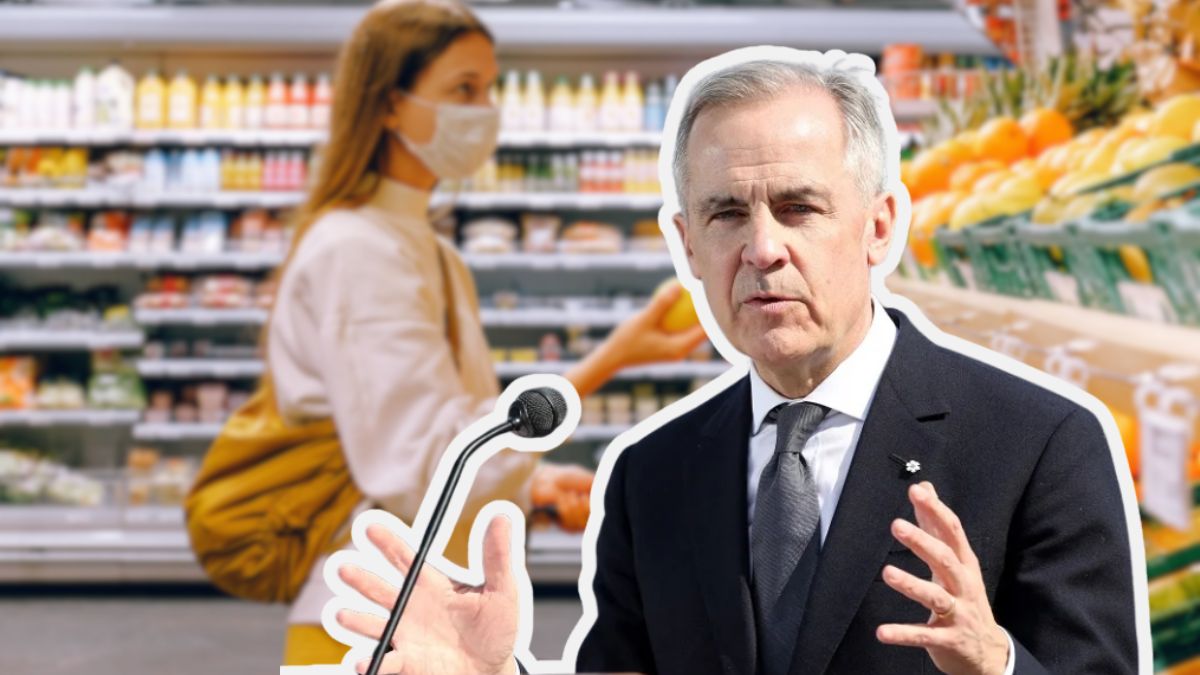For millions of Canadians, a simple trip to the grocery store has become a stark reminder of rising costs. From dairy and bread to fresh fruits and vegetables, food prices continue to stretch household budgets. To help families cope, the federal government has confirmed another round of the Canada Grocery Rebate, set to arrive in September 2025.
This program is not a permanent monthly allowance but a one-time payment that offers targeted relief to low- and modest-income households. For many families, it is just enough to ease financial strain at a time when every dollar counts.
What Is the Canada Grocery Rebate?
The Canada Grocery Rebate is administered by the Canada Revenue Agency (CRA). Introduced as a top-up to the GST/HST credit, it is designed to help Canadians manage rising food expenses. Instead of issuing it separately, the federal government aligns it with the quarterly GST/HST credit schedule, ensuring payments reach eligible households quickly and efficiently.
One important condition is that Canadians must file their 2024 tax return to be considered. Even if you earned no income in 2024, filing remains mandatory. The CRA relies on this return to determine eligibility and calculate payment amounts.
Why the Rebate Exists
With inflation continuing to push grocery bills upward, the rebate provides households with short-term relief. Although not a permanent solution to affordability, it sends a clear message that the government recognizes the struggles Canadians face.
While critics argue the rebate is small compared to the rising cost of living, supporters note that even a few hundred dollars can help families buy essentials or cover utility bills during tight months.
Who Qualifies for the 2025 Grocery Rebate?
The eligibility rules are straightforward but essential:
- You must be a resident of Canada when the payment is issued.
- You must be at least 19 years old.
- If you are under 19, you qualify only if you:
- Have a spouse or common-law partner, or
- Are living with your child.
The rebate targets low- and modest-income Canadians, ensuring support goes to households that need it most.
If you received the GST/HST credit in January 2024, you will likely be eligible for this rebate as well.
Canada Grocery Rebate Payment Dates 2025
The CRA follows a consistent schedule for distributing the GST/HST credit and grocery rebate. The 2025 payment timeline is as follows:
- April 5, 2025 – GST/HST credit
- July 5, 2025 – GST/HST credit
- August 15, 2025 – Grocery rebate released
- Direct deposit: 1–2 business days
- Mailed cheques: 5–10 business days
- October 5, 2025 – GST/HST credit
- January 5, 2026 – GST/HST credit
For most Canadians, the grocery rebate will be available by late August or early September 2025 depending on their payment method.
How Much Will You Receive in 2025?
The rebate amount depends on family size and adjusted net income from your 2024 tax return. Below is a breakdown of expected amounts:
Single Applicants
| Number of Children | Rebate Amount |
|---|---|
| 0 | \$234 |
| 1 | \$387 |
| 2 | \$467 |
| 3 | \$548 |
| 4 | \$628 |
Married or Common-Law Couples
| Number of Children | Rebate Amount |
|---|---|
| 0 | \$306 |
| 1 | \$387 |
| 2 | \$467 |
| 3 | \$548 |
| 4 | \$628 |
Examples:
- A single parent with two children will receive \$467.
- A married couple with no children will receive \$306.
- A family of four (two parents, two children) will receive \$628.
Why This Payment Matters
Every Canadian shopper has noticed higher bills at checkout, with some families forced to cut back on fresh produce, proteins, or healthier food options. For low-income households, this rebate can cover a week’s worth of groceries or help settle overdue bills.
Beyond its financial impact, the rebate serves as a reassurance that the government is taking concrete steps to respond to rising grocery prices and inflation.
CRA Direct Deposit vs. Cheques
The CRA encourages Canadians to register for direct deposit through CRA MyAccount or their financial institution. Direct deposits are faster, more secure, and reduce the risk of delays compared to paper cheques.
If your address or bank information has changed since filing your 2024 return, updating these details promptly is crucial to avoid missing your September payment.
Broader Economic Context
Canada’s inflation rate has eased slightly since its 2022 peak, but food inflation remains persistently high. Factors contributing to rising costs include:
- Global supply chain disruptions
- Climate-related crop failures
- Rising transportation costs
- Currency fluctuations impacting imports
The rebate, though temporary, helps cushion households against these global and domestic challenges.
Preparing for Your September 2025 Rebate
To ensure you do not miss out:
- File your 2024 taxes on time.
- Enroll in CRA direct deposit for faster payments.
- Verify personal information (address, marital status, dependent children) in CRA MyAccount.
- Monitor the CRA payment schedule to know when to expect funds.
Long-Term Debate on Grocery Affordability
While the grocery rebate provides meaningful relief, it also raises questions about the adequacy of one-time payments versus long-term affordability solutions. Economists and advocacy groups have suggested:
- Expanding permanent benefits like the Canada Child Benefit.
- Introducing a food subsidy program for staple items.
- Strengthening provincial food assistance programs.
For now, the rebate remains one of the federal government’s most direct and widely accessible tools for easing food insecurity.
5 FAQs
Q1: When will the Canada Grocery Rebate be paid in 2025?
Payments will begin on August 15, 2025, with direct deposit arrivals in 1–2 days and cheques in 5–10 days.
Q2: Do I need to apply for the rebate?
No. The CRA automatically issues the payment if you filed your 2024 taxes and qualify.
Q3: How much will a family of four receive?
A family of four can receive \$628.
Q4: Is the rebate taxable?
No. The rebate is tax-free and does not affect other benefits or credits.
Q5: Who is eligible for the rebate?
You must be a resident of Canada, at least 19 years old (or living with a spouse/child if under 19), and meet the income criteria based on your 2024 tax return.









